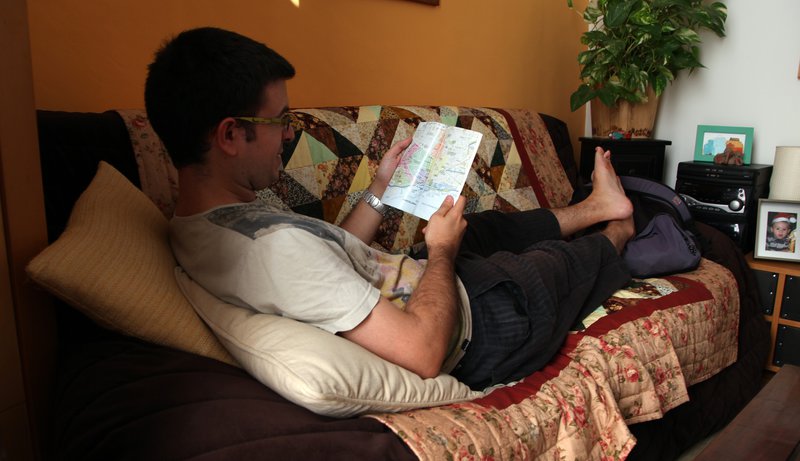THE LAST WORD
But on the bright side
Let me say I’m aware of the contradiction in writing about taking a break from the issue of coronavirus in a column about the pandemic, and which aims to direct you to an article in the magazine that you might want to check out, which this month is the feature on pages 14 to 19 about the similarities, or rather differences, between today’s crisis and the 1918 Spanish flu pandemic.
That said, let us begin.
“The worst thing we can do is to be connected 24 hours a day to the issue of coronavirus.” That is clinical psychologist Jaume Descarrega talking, who had advice about getting through the crisis in a recent article by the Catalan News Agency. The doctor said cramming on coronavirus won’t make us better informed, but will just increase our anxiety.
It’s good advice, but hard to follow, especially if you work in the media (or a hospital, or a supermarket for that matter), where all your time at work revolves around the impact of Covid-19. Of course, there is no escape for any of us, as the pandemic has infected our society to its core, and that’s without thinking about the fallout. Will there be a vaccine? What will the final death toll be? Will the economy be in tatters? Will the football season be declared null and void? Let’s not think about that now.
With coronavirus off the table, where does that leave us? I only have my own experience to draw on and that of a few people I’ve spoken to. Yet, I imagine it’s not too far from what most people are going through, confined as we all are to home and concerned about what will happen next.
The other day, I took part in an eight-way online chat with a group of friends who live around the world, most of whom I haven’t seen for ages, and a couple with whom I’ve shared little more than a few hastily typed messages. We had a blast, and hardly talked about the crisis. We’re going to do it again next weekend, and it could become a regular thing.
Meanwhile, an acquaintance told me how he’d spent the first days at home drinking beer while sitting on the sofa watching TV. It sounded good to me, but he went on to say that he got bored and started doing something he’d always wanted to explore, but had always put off: meditation. He’s now been meditating twice a day for the past week, and has begun researching online and reading books about it.
To give one other example, someone else told me how they’d gone back to the guitar after years of letting it gather dust in the corner. Commuting to work, a busy family life, and almost a sense of disappointment in himself for not making more of his passion had put him off picking up his instrument in recent years. He’s now back strumming away.
What I think these examples have in common is seeing this period of quarantine and the collective shock from an event that has already impacted all our lives so deeply as an opportunity. It doesn’t matter whether you take the chance to enhance personal relationships, improve your mind or body, or express your creativity, the important thing is to take it while it lasts, because thankfully it won’t last forever.
And the psychologists agree. In the same article, psychologist Ana Gutiérrez said that we have to play to our strengths and rise to the challenge rather than let it beat us. “It’s important to know that by staying at home we’re contributing to something positive that helps everyone,” and she added we should try to get something good out of the experience, “something rewarding that we can learn from.”
I couldn’t agree more, although the occasional beer in front of the telly is also okay.

